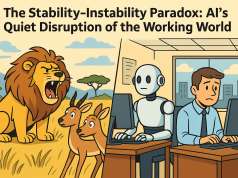In the relentless march of technological innovation and shifting market dynamics, the only constant is change. This truth resonates profoundly within the workplace, where the skills that once set you apart may now barely meet the baseline requirements of your role. As the business landscape evolves, the skills gap — the chasm between the competencies needed and those possessed by the workforce — widens. For ambitious professionals and growth-minded companies, particularly in the finance sector, the solution lies in a commitment to continuous professional development (CPD).
Professional development is not just about attending occasional seminars or networking events; it is the strategic, ongoing pursuit of knowledge and expertise to ensure one’s skills remain relevant and competitive. It is about nurturing agility, fostering innovation, and, ultimately, securing career longevity.
For individuals in the finance industry, where precision and up-to-date knowledge are paramount, CPD surfaces as a cornerstone of career advancement. The digitization of financial services, the emergence of blockchain technologies, and the complex landscape of regulatory compliance underscore the necessity of lifelong learning. Professionals who embrace CPD can navigate these turbulent waters and emerge as leaders and innovators.
The significance of professional growth transcends personal benefits, impacting the broader organizational context. Employees who actively engage in professional development bring fresh insights and a proactive approach to their roles, driving organizational performance and adaptability.
Training, mentorship, and online learning platforms are the pillars upon which CPD rests. By harnessing these resources, individuals can cultivate a robust and diverse skill set. For example, many professionals have turned to online courses from prestigious institutions to gain a competitive edge. Mentorship, whether formal or informal, offers a valuable exchange of knowledge and experience, guiding mentees through the intricacies of their industries.
One inspiring case study is the story of Sarah, a financial analyst at a mid-sized firm who recognized the power of CPD early in her career. By dedicating her time to specialized certifications and seeking out a seasoned mentor within her company, Sarah was able to fast-track her career progression, eventually leading her to a top executive role.
However, the onus of CPD does not fall solely on employees. Companies, especially within the finance sector, must play a proactive role in cultivating a culture of learning. Strategies may include offering in-house training sessions, providing access to online courses, supporting further education, and recognizing and rewarding development milestones.
The New York Times targeted demographic, which includes well-educated, career-oriented individuals, has unique professional development needs. These professionals seek advancement, fulfillment, and a harmonious work-life balance. To cater to these needs, CPD programs must be flexible, diverse, and accessible, aligning with their demanding lifestyles.
In conclusion, the imperative of continuous professional development in bridging the skills gap cannot be overstated. Whether for the individual carving out a successful career path or the organization striving for excellence, CPD is the engine of growth and competitiveness. As the workplace continues to evolve, those who invest in their ongoing development will not only survive the waves of change — they will ride them to new heights of professional success.


















![From TAOLabs: A New, Simplified Way to Learn in the Age of Chaos [30m60h90d] From TAOLabs: A New, Simplified Way to Learn in the Age of Chaos](https://theworktimes.com/wp-content/uploads/2025/05/ChatGPT-Image-May-13-2025-01_11_22-AM-238x178.png)









